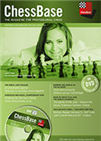A complete meltdown
Full expert analysis of the game will be published shortly on our news site. Game 9 will be annotated by former FIDE world champion Rustam Kasimdzhanov!
 As chess history fans know all too well, the world champion at each point in time is not necessarily the strongest player in the world at that very moment. Nowadays, and for quite a while already, there is no doubt about who is the strongest player in the world, but we still relish on the idea of seeing Magnus Carlsen facing the tough task of defending the title against a worthy opponent every two years or so.
As chess history fans know all too well, the world champion at each point in time is not necessarily the strongest player in the world at that very moment. Nowadays, and for quite a while already, there is no doubt about who is the strongest player in the world, but we still relish on the idea of seeing Magnus Carlsen facing the tough task of defending the title against a worthy opponent every two years or so.
One of the greatest in the history of our game, Carlsen won his fifth World Championship match in a row (two in rapid playoffs) shortly after turning 31 years old. Once and again, the man from Tønsberg has proven that he is the very best, and we can only wait and see how the more mature version of the Norwegian deals with the younger generations — i.e. Alireza Firouzja, Andrey Esipenko and the like.
The world champ was asked about Firouzja in the press conference, and he gave a resounding response regarding the youngster’s recent performances:
I was really impressed with his performance in the Grand Swiss and in the European Team Championship, and I would say that motivated me more than anything else.
 Let our authors show you how Carlsen tailored his openings to be able to outplay his opponents strategically in the middlegame or to obtain an enduring advantage into the endgame.
Let our authors show you how Carlsen tailored his openings to be able to outplay his opponents strategically in the middlegame or to obtain an enduring advantage into the endgame.Carlsen’s fourth successful defence of the world title was rather strange in comparison to previous matches. The latest challenger, Ian Nepomniachtchi, handled the first five games in style, showing excellent preparation while keeping the score tied against the world number one — who incidentally had already gained plenty of experience in similar situations.
Then came game 6, the turning point of the confrontation. In a marathon game, which will be repeatedly analysed in the near future, Carlsen came out on top after a rollercoaster battle. The game lasted almost 8 hours and, in hindsight, had a major impact in Nepo’s psychological shape. What followed was nothing short of a disaster for the Russian, who lost three games after horribly blundering simple tactical tricks — especially for players of the highest level.
It is hard to find an example in recent history to compare such a meltdown. The most similar scenario was seen perhaps at the 1995 World Championship, when Vishy Anand lost four games in five attempts after getting up on the scoreboard against Garry Kasparov in game 9.

Victorious — Magnus Carlsen | Photo: Eric Rosen
Serious Carlsen gets the job done
It is truly astounding to see the development of Carlsen through the years. During the post-match press conference, the Norwegian repeatedly mentioned the level of seriousness with which he approached the match — a fact that was visible for the spectators throughout the confrontation. A cool-headed defending champion used a more conservative approach with the black pieces in comparison to previous matches, and never seemed to lose focus even when things were clearly favourable for him.
 "Special" on Judit Polgar with analyses and videos on strategy and endgame. Demchenko, Sarana, Erdos, Grandelius, Saric et al. comment on games from the European Individual Championship. Opening videos by Ragger, King and Marin. Plus 11 opening articles
"Special" on Judit Polgar with analyses and videos on strategy and endgame. Demchenko, Sarana, Erdos, Grandelius, Saric et al. comment on games from the European Individual Championship. Opening videos by Ragger, King and Marin. Plus 11 opening articlesAs Judit Polgar mentioned during the commentary webcast, we have yet to see how far the champ can go in terms of his competitive abilities. The Hungarian emphasized Carlsen’s capacity to improve and adapt to new circumstances.
Of course, now that Carlsen has won the World Championship match five times, the discussion regarding who is the best player of all time continues to heat up, as the Norwegian is getting closer to Kasparov’s record of seven wins in similar matches. Carlsen’s response when asked about this discussion was categorical:
I’m not done with my career yet.
A big sports fan, Carlsen shared a picture of the late Kobe Bryant celebrating a fifth NBA title shortly after winning the match
The work needed to win a chess match for the highest title is not done by a single person. Both Carlsen and Nepo thanked their teams of analysts and assistants for the work done during the match, with the world champion’s top aide Peter Heine Nielsen soon after sharing on Twitter the full lineup of seconds that ‘won’ the theoretical side of the combat.
Besides Heine Nielsen, the team included Laurent Fressinet (France), Jan Gustafsson (Germany), Jorden van Foreest (the Netherlands) and Daniil Dubov (Russia).
Heine Nielsen’s wife Viktorija Cmilyte congratulated Carlsen, but also her husband, who is on the winning side of a World Championship match for an astounding eighth time!
“He just wants to lose”
For a third time in about a week, the game was decided by a blunder. Nepo was certainly out of sorts after the painful loss in game 6, and gave away three whole points in the most important event of his career by making mistakes that are unlikely to appear even twice at an elite round-robin event.
Out of an Italian Opening, Carlsen both kept things under control and created enough difficult questions for his opponent to get a victory if things went wrong for the Russian — as had been the case twice before in the match. The approach worked wonders, with Nepo badly blundering on move 23.
23.g3, played after a 9-minute reflection, demonstrates that the challenger horribly miscalculated perhaps the most forcing line in the position. Commentator Anish Giri quickly assessed the situation as a subconscious sabotaging process by Nepo, who simply wanted to get over with the match. Giri stated, noting how unlikely it is for a player of the challenger’s calibre to make such a mistake:
He just wants to lose.
Carlsen did not need long to show the refutation, starting with 23...dxe3 24.gxf4 Qxg4+ 25.Kf1 Qh3+ 26.Qg1 Nf5
The knight jump to f5 was not the most precise continuation, with 26...exf2+ leading to an easily winning position. Carlsen’s choice was still winning, however. The contenders eventually entered a rook endgame, which was at all times clearly winning for Black, although the champ did not always find the quickest path to victory.
In line with his play during the match, though, Carlsen never lost focus and showed good nerves until getting a 49-move win. The 31-year-old star had cool-headedly secured a fifth World Chess Championship title in his illustrious career!

Ian Nepomniachtchi resigns the World Championship match with a smile | Photo: Niki Riga
All games
Links


















 As chess history fans know all too well, the world champion at each point in time is not necessarily the strongest player in the world at that very moment. Nowadays, and for quite a while already, there is no doubt about who is the strongest player in the world, but we still relish on the idea of seeing Magnus Carlsen facing the tough task of defending the title against a worthy opponent every two years or so.
As chess history fans know all too well, the world champion at each point in time is not necessarily the strongest player in the world at that very moment. Nowadays, and for quite a while already, there is no doubt about who is the strongest player in the world, but we still relish on the idea of seeing Magnus Carlsen facing the tough task of defending the title against a worthy opponent every two years or so.




